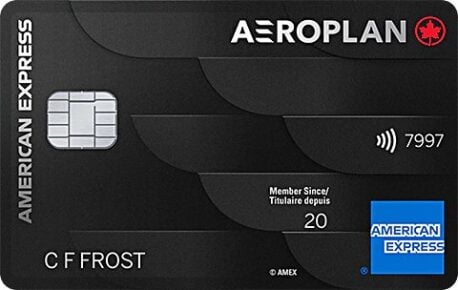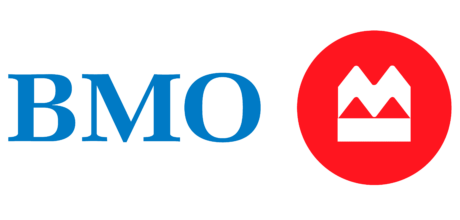Credit scores are an important financial tool that can have a large impact on your life. Financial institutions use them to help decide whether to give you a mortgage or loan and what rate of interest to charge you. Landlords may use your credit score to decide if they should rent you an apartment. It’s even possible that potential employers will look up your credit score to get a sense of how responsible you are.
Considering your credit score’s importance, it’s a good idea to understand what makes a good credit score.
What is a credit score?
A credit score is a three-digit number that falls somewhere between 300 and 900. The higher your number, the better your credit score is, and the more likely potential lenders will view you as a responsible borrower who pays your bills and debts on time.
Credit score ranges
As mentioned above, Canadian credit scores range between 300 and 900. Though each potential lender will have its own standards as to what credit scores are acceptable, the range below from Equifax is a reliable guideline:
- Scores from 760 to 900 are considered excellent
- Scores from 725 to 759 are very good
- Scores from 660 to 724 are good
- Scores from 560 to 659 are fair
- Scores from 300-559 are poor
The higher your credit score, the more likely you are to get approved for credit cards and loans and be offered the best interest rates. Ideally, you’d work towards getting the highest score possible, but a credit score of at least 660 generally makes you eligible to apply for a variety of loans and credit cards.
How is a credit score calculated?
In Canada, there are two main credit bureaus — Equifax and TransUnion — that are responsible for calculating individuals’ credit scores. These companies collect data about your financial activity and then distil that information into a credit score based on five key factors, as outlined below. (Note that it’s impossible to determine your exact score without consulting the credit bureaus because they don’t openly disclose the specific formulas they use in their calculations.)
» MORE: What is a credit report?
Payment history
Your payment history is the most crucial element, accounting for 35% of your credit score. Payment history is a record of all your current and recent debts (including credit cards, installment loans and lines of credit), and whether you made your payments on time. If not, it shows how late you were, if you missed payments entirely or if an account went to collections. This negative data stays on your payment history record for years, so always making your payments on time and in full is the best way to keep up a good payment history.
Credit utilization
Credit utilization, which accounts for 30% of your credit score, measures what percentage of your total available credit you’re using at any given time. So, if the borrowing limits on all your credit cards and lines of credit total $50,000, and you have outstanding balances of $25,000 on that available credit, your credit utilization ratio is 50%. In general, experts recommend you keep your credit utilization ratio under 35%.
Credit history
Credit history accounts for 15% of your score. This is the length of time you’ve had your various credit accounts open. The longer your credit history the better, because creditors want to see that you have a history of handling debt responsibly.
Public records and/or credit mix
This category accounts for 10% of your score. Equifax appears to put more emphasis on information from public records, including whether you have a history of bankruptcy or overdue accounts being sent to collection agencies. TransUnion, on the other hand, appears to more carefully consider the different types of credit you use, looking for a good mix of revolving credit accounts (such as credit cards and lines of credit) as well as installment loans (such as student loans or a mortgage).
Credit inquiries
This factor, which accounts for 10% of your score, looks at how often and how recently you’ve requested new credit. When you inquire about a loan or apply for a new credit card, a “hard inquiry” (also known as a hard pull) is recorded on your account. Too many hard pulls can be problematic, as they may indicate to potential creditors that you’re experiencing financial difficulty and need access to more funds. “Soft pulls,” such as when you look up your credit score, do not affect your credit score.
Average credit score by age group
According to a 2018 survey from Equifax, the average credit score by age group in Canada is as follows (estimates only):
- Age 18 to 25: 692
- Age 26 to 35: 697
- Age 36 to 45: 710
- Age 46 to 55: 718
- Age 56 to 65: 737
- Age 65+: 750
FAQs
Your credit score tells potential lenders whether you’re creditworthy. If you have a high score, you’ll be deemed creditworthy, which is just another way of saying you’re a good credit risk because you’re more likely to make good on your debts.
Your credit score is a crucial consideration for potential creditors; however, it isn’t the only thing that matters. Additional factors include your income, whether you have any collateral (a home or other asset, for example) to secure a loan, how much other debt you’re carrying and if you have stable employment (versus being self-employed or a gig worker).
You can get a copy of your credit score and credit report by contacting Equifax and TransUnion. Both credit bureaus also offer credit report monitoring services for a fee. Some personal finance sites also offer free scores and reports via email if you sign up with them.

How to Get a Better Credit Score
Want to improve your credit? These strategies can help you boost your credit score and demonstrate your creditworthiness to lenders.

What You Need to Know About Credit Reports
Your credit report is a detailed list of your credit and payment history. The information included is used to calculate your credit score.

How Do Credit Inquiries Work?
A soft inquiry pulls enough of your credit history to determine your creditworthiness; a hard inquiry is a formal review of your credit report.







